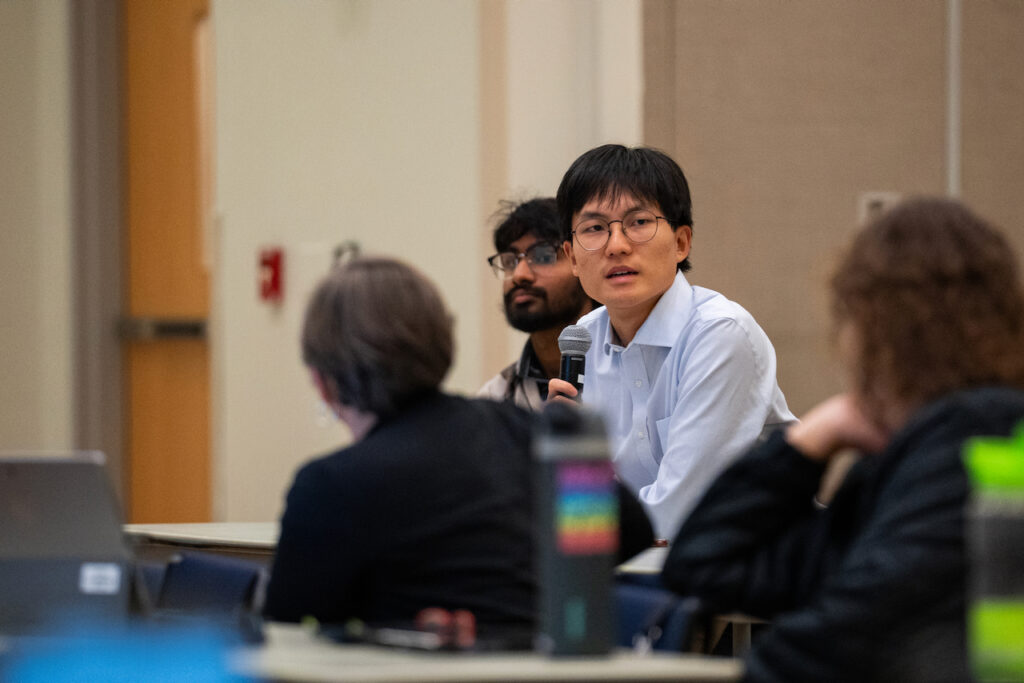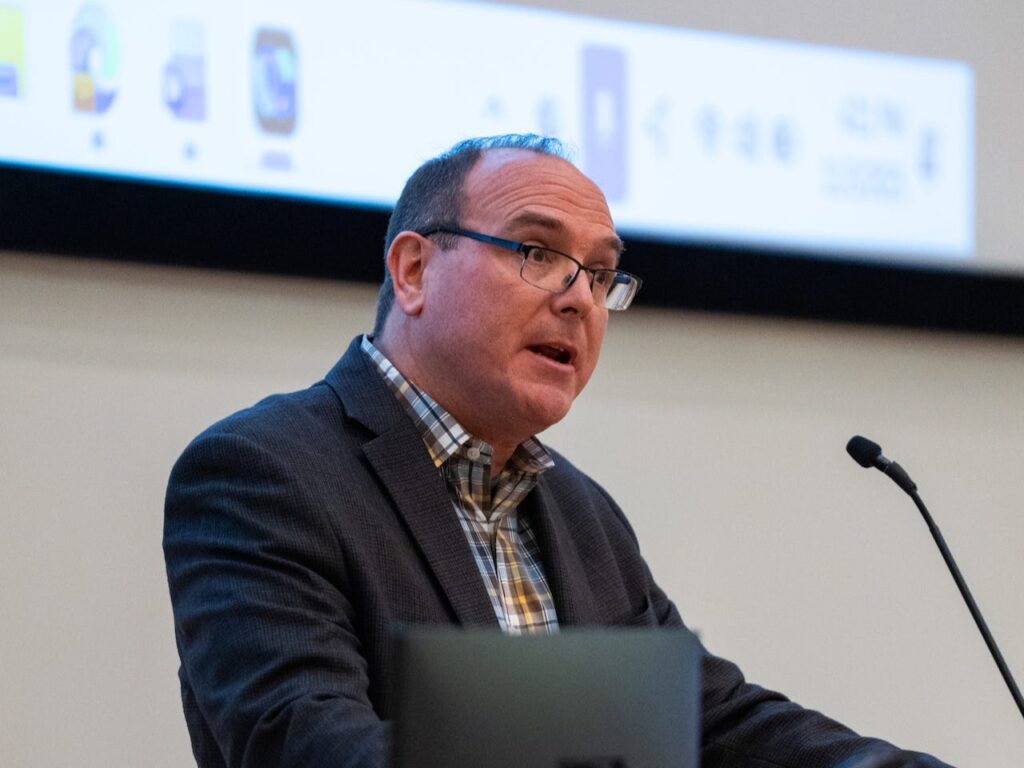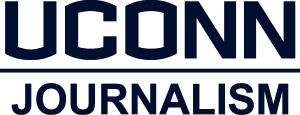
Photo by Connor Sharp/UConn Journalism
By Sara Bedigian & Breanna Bonner
UConn Journalism
November 4, 2025
The University of Connecticut Senate voted on Monday night to delay a requirement that all undergraduates take a course on anti-Black racism amid concerns that requiring the course would be considered discriminatory by the Trump administration.
The course was first introduced as a pop-up in 2020 following student advocacy after the Black Lives Matter protests. In May 2023, a proposal was adopted to make the course a graduation requirement for all undergraduates. Since then, the course had been in development, and the requirement had not yet been imposed.
The course has covered such topics as systemic and institutional racism, Black resistance and Black resilience.
The university counsel advised the University Senate that the anti-Black racism course requirement as originally passed could be considered illegal by the current federal administration. This comes after the U.S. attorney general’s office issued a memorandum to all federal agencies in July, establishing guidelines for unlawful practices with federal funding. These included race-based scholarships and cultural competency requirements.
Bob Day, the chair of the Senate Executive Committee, proposed creating a task force to develop the course, amid current federal policy changes and budgetary concerns. Suggestions included offering a selection of related courses focusing on anti-Asian, anti-Muslim and anti-Semitism topics for students to choose from in addition to anti-Black racism, as opposed to requiring a single class.
The motion, which passed 59–10 on Monday night, will create a task force to issue a report to the executive committee by February, with specific recommendations that could be discussed in subsequent meetings.
“We think that the best that we [can] do is to consider these things slowly and patiently with task force [members] that are represented that can speak thoughtfully and work with the other stakeholders,” Day said.

Andy Zhang, president of the Undergraduate Student Government, said he was in favor of the task force, and that mandating the anti-Black racism course in this political climate would draw unwanted attention to UConn. He added that he was concerned that if UConn moved too quickly on requiring the anti-Black racism course, it could jeopardize future diversity initiatives.
“We don’t want to get rid of ABR, but we want to do it in a way that is feasible and successful and works for everyone,” Zhang said, referring to the anti-Black racism course.
Douglas Kaufman, an associate professor of literacy in the Neag School of Education and a member of the senate, urged his colleagues to reject the motion. He added that task forces often slow down initiatives.
“There are real dangers to pushing back against oppressive forces,” Kaufman said. “Nevertheless, history also tells us that when we don’t do that, we face oppression for longer amounts of time.”
Others raised budgetary concerns. Alexis Boylan, a senator and a professor of art history and Africana studies, noted that pausing the course will ensure that faculty responsible for running it will be paid and supported properly.
“We can settle the timelines we want, and if there is no way to fund it, that is going to be a major hurdle that we’re all going to have to face,” Boylan said.
The course originated from students in 2020 at a virtual town hall meeting by the African American Cultural Center. Shawn Salvant, an associate professor of Africana studies and English, said the course was partially a response to reports of microaggressions happening on campus at the time. The course was offered as a pop-up course in 2020, 2021 and 2022.
In 2023, Salvant and Stephany Santos, an assistant professor-in-residence in bio-medical engineering, were selected as co-chairs of the ad-hoc committee to move the requirement proposal through the Senate process. Salvant said the effort was driven primarily by student action and input, including from the undergraduate student government.
Even if new recommendations are passed in April from the task force, Day said the course will likely not be offered for 2026–2027 due to funding concerns and to allow time for the course development.
UConn Journalism student Christi Thrower contributed to this story.
